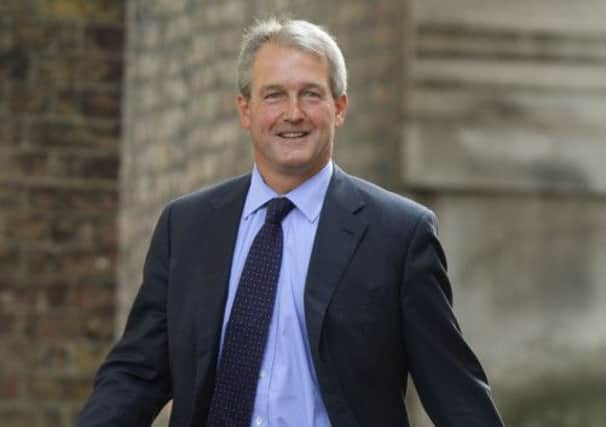Tory rising star says technology key to prosperity in countryside


At last autumn’s Conservative Party conference, only weeks after being made Environment Secretary, he hit the headlines with an attack on their “Soviet-style subsidies” and “inefficient” use in areas such as his native Shropshire.
Such comments have enraged green activists. But made they have also helped his growing status as a darling of the Tory Right – not to mention endearing him to many countryside campaigners.
Advertisement
Hide AdAdvertisement
Hide AdIt is interesting, then, to hear this passionate advocate of country life take a very different stance on the decision to relax the rules on erecting phone masts and broadband cabinets in England’s national parks – another issue now vexing rural groups.
“Having talked to people in national parks, I think those that live there very much appreciate the value of this technology,” he says.
“I was very clear that this is of such supreme importance for the rural economy, I thought it was right to speed the thing up by making all the planning requirements much, much faster.”
Telegraph poles, it seems, are a different kettle of fish to turbines.
Advertisement
Hide AdAdvertisement
Hide Ad“I live in a very remote part of Shropshire,” he says. “I look out of the window, I look straight at a telegraph pole. You live with a telegraph pole in the countryside – I don’t see it’s a huge infringement of my view. But for those who live in the parks, they are massively disadvantaged without proper communications.”
For if Mr Paterson is passionate about the rural economy, he is almost evangelical about the change that modern communications will bring,
“I see broadband as an absolute top priority,” he says. “I see this as being bigger than the canals, the railway, the telephone put together. In one hit you get away from the central disadvantage of working in remote rural areas.”
He cites his favourite example, a small firm at the “top of a fell” in Cumbria which is now “designing golfing villas in Nasariyah, Iraq”.
Advertisement
Hide AdAdvertisement
Hide Ad“You just couldn’t possibly imagine that activity (a few years ago),” he says.
And it’s not just broadband. Mr Paterson is “acutely aware” of the problem that poor mobile phone coverage causes people and businesses in the countryside.
He also thinks he may have spotted a partial solution on the continent, where mobile phone users are able to ‘roam’ between networks as they move around the country to ensure they have the best possible coverage.
“For historic reasons here, in order to get the infrastructure up, we haven’t had roaming in this country,” he says. “It’s expensive, but I think a lot of people in rural areas would be prepared to pay the price to have a proper service.”
Advertisement
Hide AdAdvertisement
Hide AdMr Paterson has sought to bring a business focus to the Department for Environment during his five months in office.
He has already led a major trade delegation to China, and is forthright about the role of Ministers in finding opportunities for British food in emerging markets.
“I’m absolutely clear we can do more to help exports,” he says.
Just as important is encouraging more people at home to buy British. The UK, he says, has “an ice cream deficit, a yoghurt deficit, a dessert deficit” – it seems we’re bringing far too much food in from Europe for our own good.
Ah yes, Europe.
Advertisement
Hide AdAdvertisement
Hide AdMr Paterson is one of the most Eurosceptic faces around the Cabinet table, and there has been speculation he might campaign for Britain to leave the EU should David Cameron’s referendum become a reality.
But he is not willing to be drawn on post-2015 possibilities.
“That’s down the road,” he says. His immediate job is negotiating with his European counterparts on reforming the Common Agricultural Policy in Brussels.
“I work within the existing system,” he says. “I’m absolutely making the case for British farmers within the existing system.
“Whether this is a sensible system is a much bigger question.”